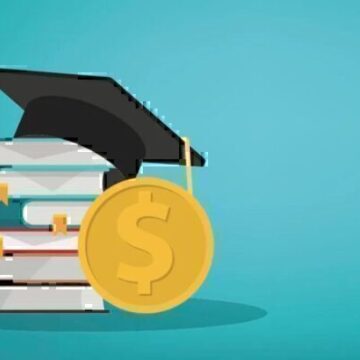Know your rights: The Fair Debt Collection Practices Act (FDCPA) protects you from harassment and unfair practices by debt collectors.
Be proactive in negotiating a payment plan, exploring a Debt Management ProgramDebt Management Program, or seeking support from a trusted non-profit credit counseling agency like GreenPath.
Prevent future calls and request written confirmation of resolved debt and register your phone number with the National Do Not Call Registry.
The average debt an American owes is more than $100k across mortgage loans, auto loans, credit card debt, student loan debt, and personal loans according to research data from Experian.
Debt is a leading cause of financial stress in our country, and when you factor in the relentless ringing of collection calls, the outcome transcends psychological impact—stress impacts everything from sleep to heart health. But don’t lose hope: there are steps you can take when it comes to putting an end to collection calls and protecting your peace of mind.
Know Your Rights
First and foremost: familiarize yourself with the Fair Debt Collection Practices Act (FDCPA). This federal law regulates the behavior of debt collectors, outlining what they can and cannot do. They are prohibited from harassing you, calling you before 8 am or after 9 pm, and threatening you with legal action they don’t intend to take.
The FDCPA empowers you in this situation. Knowing your rights allows you to confidently address the collector and request they follow the law. You can also file a complaint with the Federal Trade Commission (FTC) if they violate your rights https://www.ftc.gov/.
Acknowledge the Calls
Tempting though it may be, ignoring collection callers won’t make the debt disappear. Here are some conversational tactics you can follow when confronting the caller:
- Be calm and assertive: Take a deep breath and remain polite during the conversation. Profane or aggressive language toward a collector can lead to a “Cease and Desist” status on your account which, in turn, prevents collectors from keeping you informed of important account developments.
- Verify the debt: Ask for the debt collector’s name, company, the original creditor, and the amount owed. Don’t admit to the debt until you’ve verified it’s legitimate.
- Don’t give out personal information: Don’t confirm your address, workplace, or bank account details unless you’re sure it’s a legitimate collector. Phone and mail cams have become increasingly sophisticated, and it’s vital to protect your identity. Request communication in writing: If you prefer written communication, you can ask the collector to send you a debt validation letter that details the debt.
- Dispute the debt (if applicable): If you believe the debt is wrong, inform the collector and request verification. Upon receipt, you have 30 days to dispute the debt in writing.
- Work out a payment plan (if possible): If you acknowledge the debt in question, be proactive in negotiating a payment plan that fits your budget.
Transform your finances with GreenPath’s expert support. Take charge of your money starting now.
800-550-1961877-337-3399Take Action
Once you’ve established that a debt is yours, you’ll want to strategize next steps to help you move forward. Here are few options you have:
- Communicate with the Original Creditor: If possible, reach out to the original creditor with whom you incurred the debt (for example, your credit card company). They may be willing to work with you in negotiating a payment plan that works for your situation.
- Seek Free Financial Counseling: Non-profit credit counseling agencies such as GreenPath can analyze your financial situation and offer cost-free, judgment-free recommendations based on your current budget and goals.
- Consider Debt Management: Beyond free financial counseling, you might also consider enrollment in a Debt Management ProgramDebt Management Program (DMP), a structured repayment plan created with a certified credit counselor to pay off debt, often with negotiated lower interest rates and faster payoff times.
Protect Yourself from Future Calls
Once you’ve established a payment plan or resolved the debt, it’s a good idea to request a written confirmation from the collector stating that they will cease communication and report the debt as “paid” or “resolved” to credit bureaus.
You also have the option of adding your phone number to the National Do Not Call Registry. This can significantly reduce unwanted telemarketing calls, including some collection calls. You can register online at https://www.donotcall.gov/ or by calling 1-888-382-1222.
Something to remember: dealing with debt is a marathon, not a sprint. Be patient with yourself, proactive, and don’t hesitate to seek help from qualified resources. Dealing with debt collection can be overwhelming, but you are not alone. There are resources available to help you navigate this situation, including:
- The National Foundation for Credit Counseling (NFCC): https://www.nfcc.org/ offers free and confidential credit counseling and education.
- The Consumer Financial Protection Bureau (CFPB): https://www.consumerfinance.gov/ provides information and tools to help you manage your finances and deal with debt collection issues.
You might also be interested in:
Upcoming Webinar: Options For Dealing with Debt
Upcoming Webinar: Options For Dealing with Debt
Wednesday, August 14 @ 2:00 – 3:00 PM Eastern Time
Join us for this free workshop to discuss a variety of payoff options, identify key differences, and weigh the pros and cons of each.
(Can’t make it? No worries! Register anywayRegister anyway, and we’ll send you the recorded webinar.)
GreenPath Financial Service
Free Debt Counseling
Take control of your finances, get tailored guidance and a hassle-free budgeting experience. GreenPath offers personalized advice on how to manage your money.










